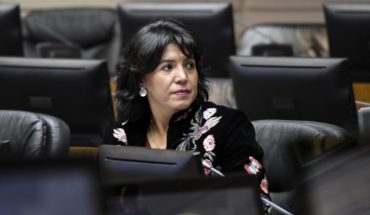Would you be willing as a restaurant customer to charge you an additional 1% to your account if it helps combat the climate crisis? The proposal is from American chef Anthony Myint, which has been moving his colleagues towards the zero carbon footprint for a few years.
Myint began his career in San Francisco with Mission Street Food, where they offered meals to those in need, and then ran The Perennial. But now he has left the stoves and is engaged in projects such as Zero Foodprint, a non-profit initiative he talked about with EFE and won the 2019 Basque Culinary World Prize.
Global campaign
The 100 thousand euros (80.5 million pesos) that received from the prize awarded by the Basque Culinary Center and the Basque Government, will use them to create scholarships so that more restaurants can be added to the project, as well as in marketing campaigns and in organizing events so that their movement “can grow and become more notorious.”
Thirty establishments have already made a commitment to achieving “carbon neutrality,” including three from The Word’s 50 Best: Copenhagen’s Noma and San Francisco’s Atelier Crenn and Benu. Another half-hundred will begin the process in 2020.
Some of them will be Mirazur, by Mario Colagreco, considered the best in the world in 2019 by Restaurant magazine, and the establishments of chefs who have been part of the jury of the Basque Culinary World Prize, such as Osteria Francescana de Massimo Botura (Italy), Narisawa by Yoshihiro Narisawa (Japan), and the Spaniards Azurmendi by Eneko Atxa, Mugaritz by Andoni Luis Aduriz and Mugaritz de El Celler de Can Roca.
“The idea of carbon neutral is not widespread. I hope that the movement will win by joining the initiative world-renowned chefs,” says Myint, born in 1978, also a promoter of The Perennial Farming Initiative, who works alongside his wife, writer Karen Leibowitz.
Raising awareness
Graduated in Economics and Asian Studies, her work with restaurants divides her into two fronts, one dedicated to “raising awareness” to help reduce greenhouse gas emissions and another that “emphasises” the financial aspects of catering business.
Beef and pork, or cheeses, are common on restaurant menus and are among the most carbon-footprinted foods. Myint understands, however, that “the most relevant thing” is not to use them less or discard them from menus, but to “find more sustainable sources, to know how that meat is produced”.
“I’m talking about the origin, of food produced, for example, through carbon farming or regeneration, which is good for soils and to mitigate global warming,” he says.
Zero Foodprint facilitates audits of restaurant operations and, through a team of collaborators, designs an annual operation plan to reduce environmental impact, including practices for water conservation, waste reduction and conversion of organic matter into compost.
Lately it is becoming more focused on the economic side, as it believes that restaurants can also financially support good practices in food production that can reduce the carbon footprint. One way would be to establish a 1% “tax” on customers’ accounts to make that profit.
“Our role,” he says, “is not to judge or criticize restaurants, but to tell them how they can introduce initiatives that help them improve.”
“In the end, if the best ones don’t produce emissions, the others will follow them, they will imitate them. Our goal is for all this to grow, to involve restaurants large and small alike,” he says.
translated from Spanish: Anthony Myint, the chef proposing a climate crisis tax
October 27, 2019 |





